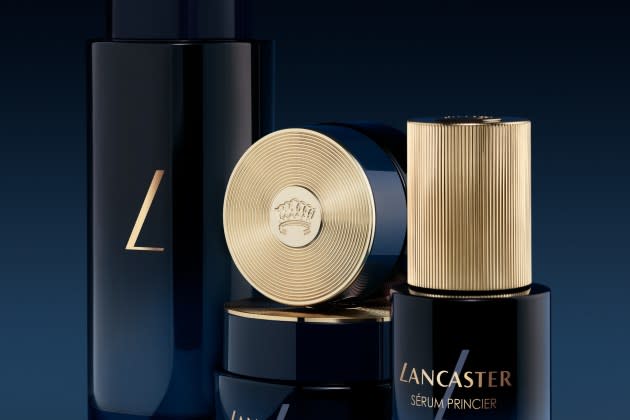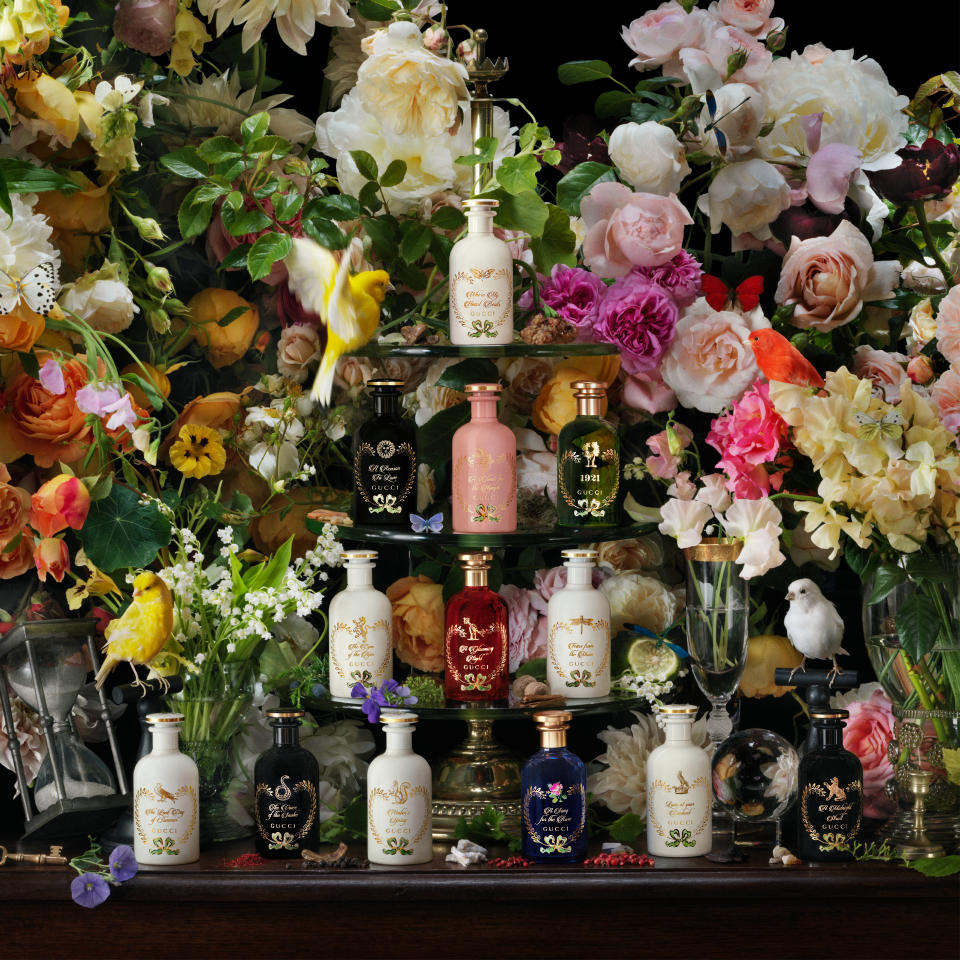Coty Raises Q4, Fiscal Year 2023 Guidance

PARIS — As Coty Inc. explores a possible second stock market listing, in Paris, the company on Thursday hosted its first investor conference in the French capital.
The meeting, which took place in a room at the Hôtel du Louvre decorated with vintage Coty perfume posters, was notably — and symbolically — held in French. That began not long after Coty revealed in a release that it has raised guidance for the fourth quarter and full fiscal-year 2023.
More from WWD
The group now expects 12 percent to 15 percent like-for-like sales growth for the three months ended June 30, and 10 percent to 11 percent like-for-like sales gains for the full fiscal year.
Coty has also, for the third time this year, increased its profit outlook for fiscal 2023, when it now expects to reach adjusted EBITDA of $965 million to $970 million, against the former guidance of $955 million to $965 million, despite incurring close to $70 million in negative currency-exchange impacts. That will include more than $10 million in the fourth quarter.
During the conference, Sue Nabi, chief executive officer of Coty, detailed how the company is leveraging its European heritage and end-to-end capabilities to achieve strong and balanced growth. She shined a light, as well, on certain product categories, geographic zones and retail channels that will help bolster business, including ultra-premium skin care and scenting, plus China, Brazil and travel retail.
Nabi fielded questions from journalists.
After one, she confirmed that Coty remains in a purely exploratory phase when it comes to a listing on the Euronext Paris exchange. The CEO explained such a move would make good sense for numerous reasons, including the fact Coty was born in Paris.
“Financial investors on the European market are probably very impassioned by beauty and luxury,” both categories that Coty is in, she continued, adding a dual listing, including the current one in New York, could enrich the firm’s investor base.
“It’s quite natural,” said Nabi, of the possible listing, but emphasized it is too early to confirm whether it will happen or any details if it does.
The subject of the Gucci fragrance and beauty license was raised, as it’s long been speculated that Kering would like to take the business in-house.
It has been estimated that the long-term license with the Italian luxury group is due to expire in 2028. Nabi didn’t mention a specific date, but reiterated that none of the licenses Coty has are due to expire within the next five years. She also highlighted the balanced growth among the company’s brands, both licensed and owned.
“None of Coty’s brands represents more than 10 percent of [overall] sales,” she said. “And it will probably go even more in this direction.” That is, as brands, particularly in categories such as skin care and premium fragrance, grow.
So whatever scenario vis-à-vis Gucci, Nabi said: “It will have no impact on the growth algorithm of the Coty group.”

When asked about the evolution of the U.S. market, the executive said: “In the U.S., we do not see a slowdown in the markets in which we operate.”
That is to say, primarily in the prestige fragrance and makeup categories.
Regarding whether acquisitions of new licenses or brands are in the offing, Nabi said that during the next two years, as the company’s turnaround continues, Coty will be obsessed with what it has — a portfolio of brands that can stretch into other categories — and build up brands’ marketing and equity.
“We’ve revitalized all our brands,” she said.
Meanwhile, Coty continues to pay down debt, and when it equals two-times EBITDA, Nabi said that’s when the company can ask itself: “Did we win all our bets, or not? What are those that would require a new brand or license?”
She emphasized Coty has deep roots in Europe, with its Franco-American heritage, and said the company has made significant strides over the past few years with a strategy driven by numerous motors of growth, which have greatly improved the group’s financial standing.
Its six strategic pillars include: stabilizing and growing consumer beauty makeup brands and fragrances; accelerating luxury fragrance to become a key player in prestige makeup; building the skin care portfolio across both the consumer beauty and prestige divisions; building e-commerce and direct-to-consumer expertise and capabilities; expanding in China and travel retail, led by prestige brands, and becoming a beauty leader in sustainability.
Coty sees significant white space in China, which rings up an estimated 13 percent of beauty sales worldwide and 4 percent of the group’s sales overall. The country is swiftly becoming a major fragrance market. Sales of prestige perfumes there are up 66 percent versus three years ago and growing 1.5-times faster than China’s prestige beauty segment.
Coty’s ambition is to more than double its sales in the country to more than $600 million by fiscal-year 2026.
Travel retail is another white space for the group. It generates 8 percent of Coty’s sales, versus about 10 percent of the beauty industry’s total. The company has gained significant market share in the channel in major geographic zones, including 90 basis points in the Americas, 180 basis points in the Europe, Middle East and Africa zone and 44 basis points in the Asia Pacific region in calendar year 2022 versus 2021.
Coty aims to increase its travel-retail sales by about 50 percent to more than $600 million by fiscal-year 2026.
According to McKinsey & Company, the global beauty market generated $427 billion in 2022, with an estimated 6 percent compound annual growth rate expected between 2022 and 2027. That compares with $66 billion and about 8 percent CAGR for beauty in China, and $47 billion and about 11 percent CAGR for beauty in travel retail.
As Coty continues homing in on key beauty growth areas, such as prestige skin care, its revenue mix by category is expected to change.
In fiscal 2023 year-to-date, prestige fragrances make up 56 percent, consumer beauty cosmetics 24 percent and body care 7 percent of overall company sales. The goal for those categories by fiscal-year 2026 is to have them grow by low 50-something percent, low 20-something percent and high single-digits, respectively.
Coty today owns 26 percent of hair care giant Wella, and considers the investment to be a financial asset worth about $1 billion.
Coty plans to sell its stake in Wella between now and 2025, according to Laurent Mercier, the group’s chief financial officer.
The company maintained its mid-term guidance of sales CAGR to be in the upper end of the 6 percent to 8 percent range through fiscal-year 2026 and beyond.
Best of WWD

